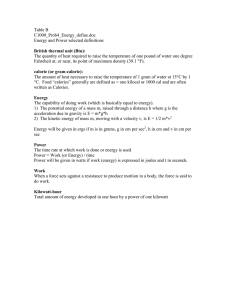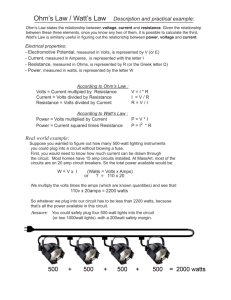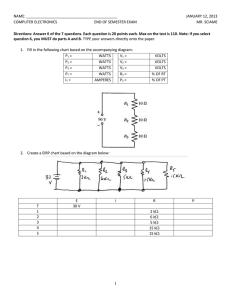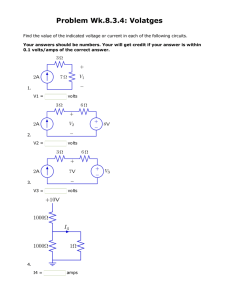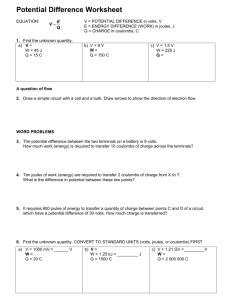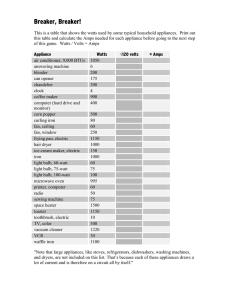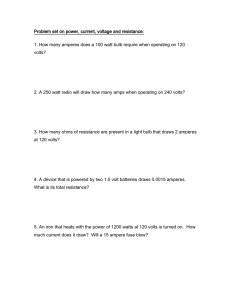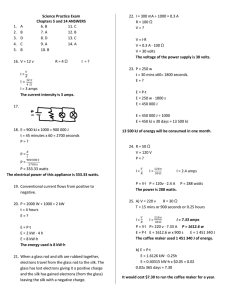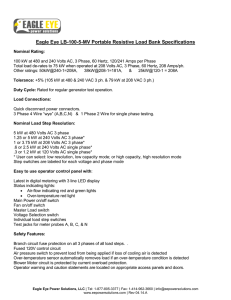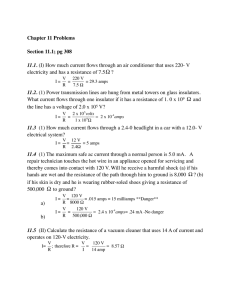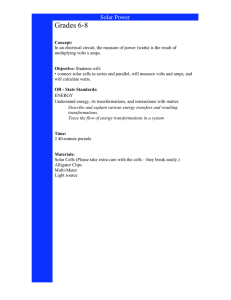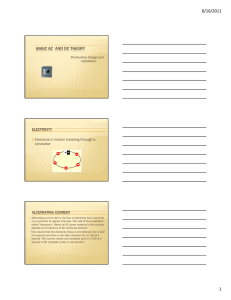Energy Academy sample Final Exam
advertisement
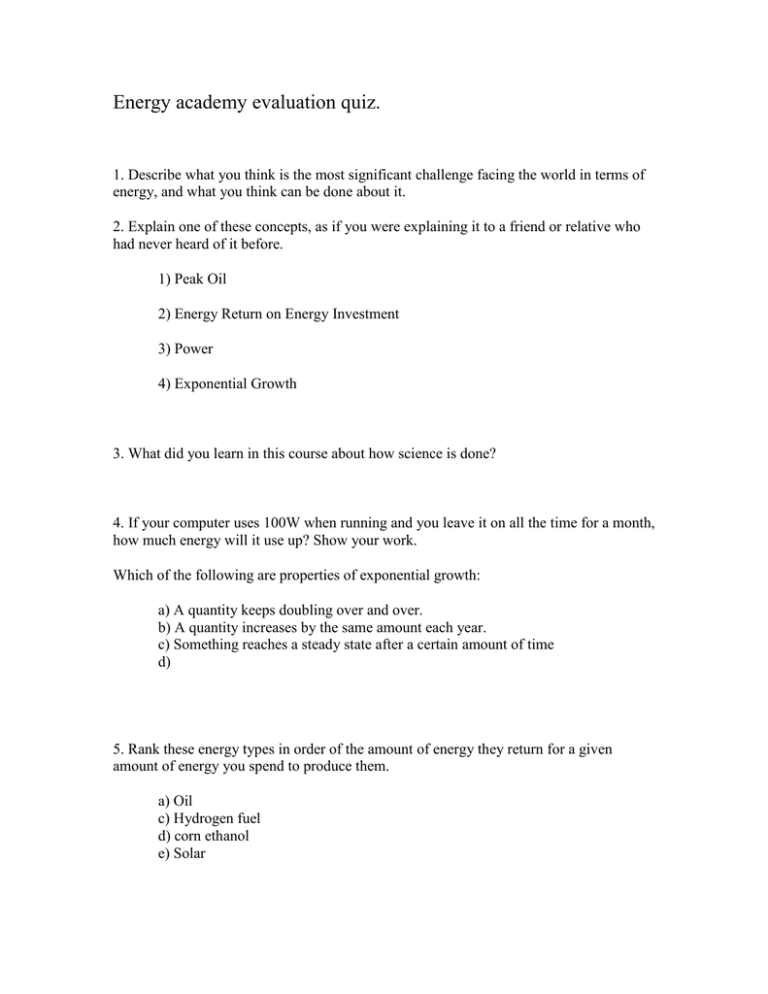
Energy academy evaluation quiz. 1. Describe what you think is the most significant challenge facing the world in terms of energy, and what you think can be done about it. 2. Explain one of these concepts, as if you were explaining it to a friend or relative who had never heard of it before. 1) Peak Oil 2) Energy Return on Energy Investment 3) Power 4) Exponential Growth 3. What did you learn in this course about how science is done? 4. If your computer uses 100W when running and you leave it on all the time for a month, how much energy will it use up? Show your work. Which of the following are properties of exponential growth: a) A quantity keeps doubling over and over. b) A quantity increases by the same amount each year. c) Something reaches a steady state after a certain amount of time d) 5. Rank these energy types in order of the amount of energy they return for a given amount of energy you spend to produce them. a) Oil c) Hydrogen fuel d) corn ethanol e) Solar 6. Sue eats a peanut butter sandwich and climbs a mountain. List the different forms the energy takes ans where it all goes, starting with the sandwich and ending with Sue on top of the mountain. 7. Which of these is not a unit of energy: a) Joules b) Watts c) Kilo-Watt Hours d) Calories 8. Approximately how much power can a person put out ? 9. If we burn bio-fuel from corn, do we end up increasing the CO2 in the atmosphere more or less than we would have by burning petroleum? Explain your answer. 10. Your friend says that she read that we are going to be able to use Hydrogen in the future to supply all of our energy needs and asks your opinion, because she knows you know a lot about energy. What would to tell her? 11. List some pros and cons of nuclear power. 12. List some pros and cons of solar power. 13. Why can energy conservation be considered a type of ‘energy source’? 14. Which of these units measures the ‘potential energy’ or ‘pressure’ in electricity? a) b) c) d) e) Volts Amps Calories Watts Joules 15. Which of these units measures the amount of electron flow, or current? a) Volts b) Amps c) Calories d) Watts e) Joules 16.Which of these units measures the rate of energy use in electricity? a) Volts b) Amps c) Calories d) Watts e) Joules 17.In this circuit, where would connect a multimeter if you wanted to measure the voltage of the battery? (name the two points.) 18. In this circuit, the light bulbs are in series or parallel? 19.The electrical outlets in your house are wired in series or parallel? 20. List 4 different ways to store energy. 21. Why is it more dangerous to have wet hands when working with electricity? 22. You have 40 solar cells that you can connect an any way you want. Each cell is .5 volts and can put out 1 amp. How would you connect the cells into an array that was at 5 volts? If you used all your panels, how many amps could your system put out? About much power could it put out? 23. On this graph, label the following: Open Circuit Voltage, Short circuit current, Point of maximum power output. 24. True or false, when soldering, it is important to touch the solder directly to the soldering iron. 25. Which type of renewable energy do you think is most likely to be able to supply the large quantities of energy that we use?
